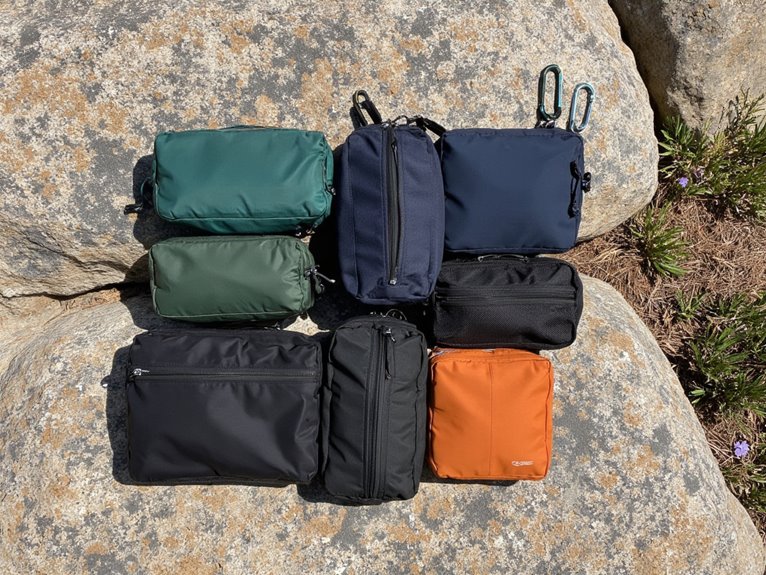What Is Better Than Butane?
For outdoor enthusiasts and environmentally conscious consumers, several alternatives to butane have emerged as reliable and eco-friendly options, offering improved performance, reduced emissions, and a lower carbon footprint. Propane, isobutane, and biomass fuels offer cleaner-burning and more sustainable alternatives. White gas provides a traditional and reliable option, while electric ignition systems and compressed fuels showcase innovative solutions. Each alternative has its unique benefits, catering to diverse needs and preferences. Delve further to discover the ideal choice for your next adventure, and uncover the potential to transform your outdoor experience.
We are supported by our audience. When you purchase through links on our site, we may earn an affiliate commission, at no extra cost for you. Learn more. Last update on 25th January 2026 / Images from Amazon Product Advertising API.
Propane: A Clean Burning Alternative
Beyond the sphere of butane, propane emerges as a clean-burning alternative, boasting a significantly reduced carbon footprint and negligible particulate emissions.
This eco-friendly fuel option is rapidly gaining traction as a reliable substitute for butane.
Propane's lower carbon intensity makes it an attractive choice for outdoor enthusiasts and environmentally conscious consumers.
Its high energy density and clean-burning properties also make it an ideal fuel for camping stoves, lanterns, and other portable equipment.
As the world shifts towards more sustainable energy sources, propane is poised to play a significant role in reducing our reliance on fossil fuels.
With its impressive environmental credentials, propane is an attractive alternative to butane for those seeking a more eco-friendly outdoor experience.
Isobutane: A Slightly Greener Option
Isobutane: A Slightly Greener Option
While propane offers a significant step forward in reducing environmental impact, isobutane presents a slightly greener option, boasting a more efficient combustion process and marginally lower carbon emissions than traditional butane.
Isobutane's improved combustion efficiency results in a cleaner-burning fuel, reducing emissions of greenhouse gases and air pollutants.
Additionally, isobutane has a lower carbon intensity than butane, making it a more environmentally friendly choice.
Its higher energy density also means that less fuel is required to achieve the same performance, further reducing waste and emissions.
White Gas: A Traditional Choice
White gas, a stalwart in the camping community, has long been revered for its reliability and efficiency as a fuel source.
Providing a consistent and powerful burn, white gas has earned its reputation as a classic camping choice, trusted by many outdoor enthusiasts.
With its impressive performance guarantee, it's no wonder white gas remains a popular option for those seeking a dependable fuel source for their camping stoves.
Efficient Fuel Source
For outdoor enthusiasts and backpackers, a reliable fuel source is essential, and white gas has long been a trusted traditional choice for its efficient combustion and versatility in extreme temperatures.
This efficient fuel source provides a consistent and reliable burn, making it ideal for camping stoves and backpacking trips.
White gas also has a high energy density, allowing for longer burn times and reduced fuel weight.
Its low viscosity and volatility make it easy to ignite and maintain a steady flame, even in windy or wet conditions.
When venturing into the great outdoors, white gas is a dependable choice for powering cooking equipment and other essential gear.
Reliable Performance Guarantee
In the domain of outdoor adventure, a reliable fuel source is vital to guarantee a successful and enjoyable experience, and white gas has consistently delivered on this promise.
With its proven track record, white gas has become a staple for many outdoor enthusiasts.
Consistent Performance: White gas provides a consistent and reliable burn, even in extreme temperatures and altitudes.
Low Maintenance: White gas stoves are relatively easy to clean and maintain, reducing the risk of mechanical failures.
Proven Track Record: With decades of use, white gas has established itself as a trusted fuel source for outdoor enthusiasts.
Classic Camping Choice
Camping traditionalists have long sworn by white gas as their go-to fuel, and its enduring popularity is a tribute to its tried-and-true performance.
White gas, also known as naphtha, has been a staple in the camping community for decades.
Its reliability in extreme temperatures and high altitudes has earned it a loyal following.
Additionally, white gas stoves are often simpler and more durable than their canister-based counterparts, making them a favorite among backcountry enthusiasts.
While it may not be the most convenient option, white gas remains a classic choice for those who value performance and simplicity in the great outdoors.
Its reputation as a trusted and dependable fuel source continues to inspire confidence in campers and backpackers alike.
Electric Ignition Systems
Electric ignition systems offer a reliable and efficient alternative to butane-powered ignition sources, eliminating the need for fuel canisters and offering a more sustainable solution for outdoor enthusiasts.
These systems utilize advanced technology to generate a spark, providing a consistent and dependable flame.
This innovative approach guarantees a hassle-free camping experience, free from the constraints of fuel canisters and the environmental impact of butane emissions.
Some key benefits of electric ignition systems include:
- Convenience: No need to worry about running out of fuel or storing canisters
- Sustainability: Reduced carbon footprint and minimal environmental impact
- Reliability: Consistent and dependable performance in various weather conditions, allowing campers to experience a trouble-free outdoor adventure.
Biomass Fuels: The Eco-Friendly Route
Harnessing the power of organic matter, biomass fuels offer a cleaner, eco-friendly alternative to butane, aligning perfectly with the outdoor enthusiast's desire to minimize their environmental footprint.
Derived from renewable sources such as wood, agricultural waste, and even food waste, biomass fuels burn more efficiently and produce fewer emissions than traditional fossil fuels.
This eco-friendly option is particularly appealing for campers and backpackers seeking to reduce their carbon footprint.
Additionally, biomass fuels can be sourced locally, supporting local economies and promoting sustainable practices.
As the outdoor community continues to prioritize environmental responsibility, biomass fuels emerge as a viable, eco-conscious alternative to traditional butane-based systems.
Compressed Fuels: The Future Ahead
As we delve into compressed fuels, it becomes clear that this alternative to butane holds significant potential for improvement.
By leveraging advanced compression technologies, we can tap into gains in fuel efficiency, reduce environmental impact, and boost portability.
In the following discussion, we'll examine the advantages of compressed fuels, shedding light on the benefits that make them an attractive option for the future.
Fuel Efficiency Gains
Compressed fuels, particularly those with high energy density, have consistently demonstrated a significant potential to surpass butane in respect to fuel efficiency gains, paving the way for a more sustainable future.
Some notable advantages of compressed fuels include:
- Improved power-to-weight ratio: Compressed fuels offer a higher energy density, resulting in more power while reducing overall weight.
- Enhanced combustion efficiency: Compressed fuels burn more efficiently, leading to increased fuel economy and reduced emissions.
- Increased range and endurance: With compressed fuels, devices and vehicles can operate for longer periods, reducing the need for frequent refueling.
Environmental Impact Reduction
With the growing imperative to mitigate climate change, adopting compressed fuels can substantially reduce greenhouse gas emissions and environmental degradation.
Compressed fuels offer a cleaner-burning alternative to traditional fossil fuels, reducing carbon footprint and promoting a healthier environment.
By leveraging advanced fuel compression technology, we can minimize the ecological impact of our energy consumption.
This shift towards sustainable energy sources is essential for preserving our planet's delicate ecosystem.
As the world moves towards a low-carbon economy, compressed fuels are poised to play a pivotal role in reducing our reliance on polluting energy sources.
Portability Advantages
Portability is a key advantage of compressed fuels, allowing users to harness energy independence wherever their adventures take them.
Whether you're a backpacker, camper, or outdoor enthusiast, compressed fuels provide the freedom to roam without being tied to a power outlet. This convenience is unparalleled, making it an attractive option for those seeking to venture off the grid.
Lightweight and compact design allows for easy transportation.
Compressed fuels can be easily refueled or replaced in the field.
Enables users to travel further and stay longer in remote areas.


